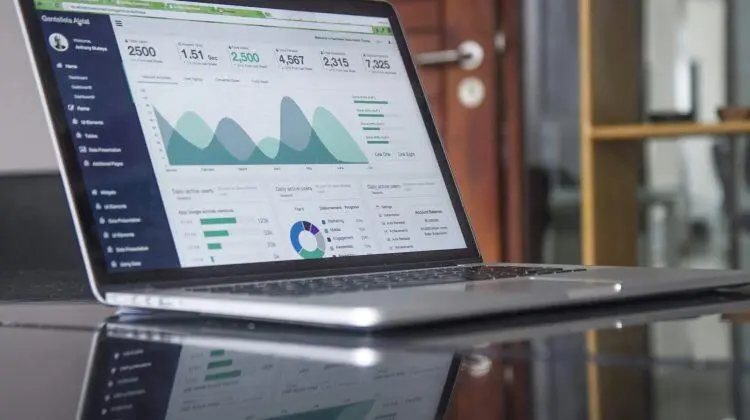
By Alvin Alen May 22, 2024
Collected at : https://datafloq.com/read/the-importance-of-data-analytics-in-servitization-2/
Introduction
Data-driven services are finding their way into more and more business domains, demonstrating the intimate relationship between servitization and digital transformation. Digital servitization opens up new avenues for long-term competitive advantage for manufacturing companies, but it also brings with it new difficulties as it changes established market positions and blurs industry lines. Digital servitization also modifies consumer connections, internal business procedures, and ecosystem dynamics as a whole.
Manufacturers are finding that data analytics is a vital tool for decision-making and operational optimization. Thanks to the advancements in analytical tools and data availability, companies may now use data to spur innovation, cut expenses, and improve product quality. In this post, we will discuss why data analytics is crucial for manufacturers to enhance decision-making.
What is Data Analytics?
Data analytics is the act of storing, organizing, and analyzing raw data in order to find answers or get valuable insights. Because it enables leadership to develop evidence-based strategies, better target marketing campaigns with consumer insights, and boost overall efficiency, data analytics is essential to business. Utilizing data analytics gives businesses a competitive edge by enabling them to make decisions more quickly, which boosts profits, reduces expenses, and promotes innovation.
Importance of Data in Servitization
Figuring out how to get the data talking and flowing is a problem for every business. Even though automation may frequently be used to gather qualitative data, field engineers still collect a lot of data through human interaction and input it into mobile devices.
On the other hand, asset data is created during every phase of the life cycle of a product, starting from the design and testing phase, continuing through the manufacturing, installation, and customer use phases, and ending with decommissioning, which may involve recycling, renovation, or disposal.
Servitization is not possible without asset data. Any business may use this data to contextualize its customers and get insights on assets throughout their life cycles. Comparable asset data amongst clients may also help with design and service optimization when trends show up, and suggestions for bettering those assets can be made.
Guidelines for a Servitization Roadmap
Before entering the servitization market, manufacturers should create a foundational strategy outlining the services they will provide and if the expenses of the investment are justified. This plan should assess their ability to be the service’s natural owner, the service’s demand both now and in the future, how it affects their core businesses, the possible negative effects of not providing the service, the ecosystem partnerships required to maximize the value and efficiency of service delivery, and the technologies required to implement it successfully.
After these factors have been correctly recognized, a solid roadmap incorporating the previously mentioned business and technological levers has to be developed. A successful roadmap should also take into account the use of sophisticated analytics that can grow with the company, new operating models that generate income from as-a-service capabilities, and a strong AI foundation that makes judgments and takes actions depending on the analytics engine. In some circumstances, it could even be beneficial to think about creating a focal wing just for servitization offers as opposed to just adding features to already-existing goods.
The Importance of Data Analytics in Servitization
Manufacturers can enhance their comprehension of client requirements, streamline service delivery procedures, facilitate predictive maintenance, customize service offerings, and make well-informed decisions by utilizing data-driven insights. Here are some points highlighting the importance of data analytics in servitization:
Increase Your Understanding of Target Markets
With access to their web pages, businesses can gain valuable insights into the needs, preferences, and browsing and purchasing behaviors of their consumers. Businesses can analyze data collected from certain markets and then customize their products and services to meet these demands. They may also be able to identify trends and patterns faster. A business that has a greater grasp of its customers’ identities and needs will be better able to ensure customer happiness, boost sales, and foster customer loyalty.
Improve Your Ability to Make Decisions
Furthermore, data analytics enables businesses to make better-informed choices faster, saving money on things like ill-conceived marketing campaigns, ineffective procedures, and unproven concepts for brand-new products and services. By implementing a data-driven decision-making approach, CEOs may position their businesses to be more proactive in detecting opportunities since they can be guided by the accuracy of data rather than merely gut instinct or prior expertise in the sector.
Develop Focused Advertising Campaigns
Businesses may also use data to inform their strategy and carry out tailored marketing efforts, ensuring that promotions engage the right consumers. Marketers can create personalized advertising by analyzing point-of-sale transactional data, monitoring online purchases, and researching customer trends in order to target new or evolving consumer demographics and increase the efficacy of overall marketing initiatives.
Conclusion
The scope of servitization has evolved throughout several decades, owing to new technology and economic models. Manufacturers can no longer afford to rely just on sales of their products and equipment to support their operations. They have a strong income stream from the provision of services linked to their products, which helps them withstand unstable markets and short sales cycles.
In addition to increasing manufacturing efficiency, technological advancements like cloud computing, IoT, AI, and data analytics give manufacturers affordable alternatives to offer as-a-service products to consumers. However, before implementing servitization, businesses must have a well-thought-out plan that assesses the benefits servitization may offer.

Leave a Reply